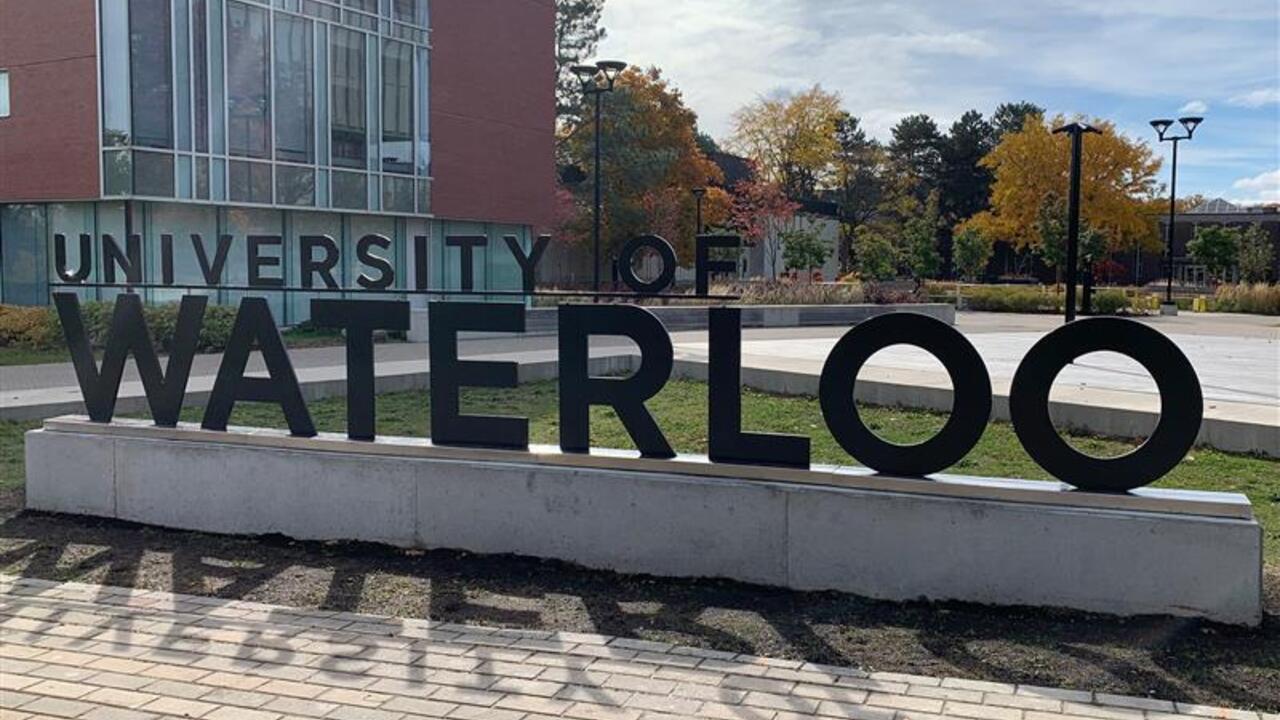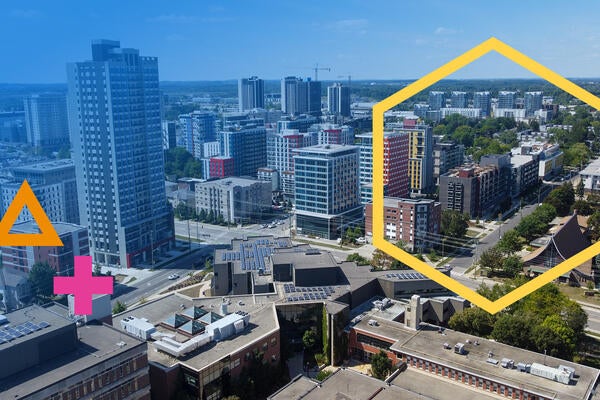
University of Waterloo awarded six Canada Research Chairs
University of Waterloo awarded six Canada Research Chairs.

University of Waterloo awarded six Canada Research Chairs.
By Media RelationsUniversity of Waterloo awarded six Canada Research Chairs.
WATERLOO, Ont. (Thursday, Mar. 22, 2012) - The University of Waterloo has cemented its place in the top echelon of Canadian research centres after six of its researchers received $7.5-million to pursue projects ranging from alternative energy storage to improved interactive audio.
The latest round of funding for Canada Research Chairs puts Waterloo in the top five research universities across the country. These research professorships allow faculty members to focus on their research and train the next generation of leading scientists.
“This support underscores the importance and impact of research taking place at the University of Waterloo,” said Feridun Hamdullahpur, president & vice-chancellor of Waterloo. “Not only is the work that received this funding changing how we interact with technology and live our lives today, but it is shaping how our society will work in the future.”
The six Canada Research Chairs from the University of Waterloo included in this latest round of funding are:
• Professor Karen Collins, Canadian Centre of Arts and Technology
CRC in: Interactive Audio
Received: $500,000 over five years (Renewal)
Research: Emotional impact is one of the biggest challenges for interactive media creators, and sound is integral to creating the desired effect. Collins is creating software to insert user-generated content into games, to make game sound more accessible, and to automatically generate sounds and music to accompany existing musical scores. Collins’ work could be used in any place or medium in which sound is used, and could open up a new realm of interactive media activity in Canada’s high-tech and cultural sectors.
• Professor Richard Cook, Department of Statistics and Actuarial Science
CRC in: Statistical Methods for Health Research
Received: $1.4 million over seven years (Renewal)
Research: Huge amounts of information and data are collected in medical research, from dates of diagnoses and history of health issues to contact with possible agents of causation. Cook works with oncologists, epidemiologists and rheumatologists to study this data in a bid to better understand the natural history of disease, to identify risk factors in disease progression, and to better predict the course of a disease for a person or a wider population.
• Professor Brian B. Dixon, Department of Biology
CRC in: Fish and Environmental Immunology
Received: $1.4 million over seven years
Research: While we know much about disease prevention in mammals, the world of fish is another matter. Only a handful of immunologically important molecules have been found in fish, making it difficult to create vaccines and drugs for the aquaculture industry. Dixon studies the immune systems of fish and frogs in the hope of working out how these systems work. This information will not only help create vaccines and drugs for fisheries, but it will help us better understand ecosystems including the Great Lakes, and the evolution and function of similar immune-system molecules in mammals.
• Professor Carl Haas, Centre for Paving and Transportation Technology
CRC in: Construction and Management of Sustainable Infrastructure
Received: $1.4 million over seven years (Renewal)
Research: Canada’s civil infrastructure is worth more than $3 trillion, encompassing everything from roads and sewers to suspension bridges, skyscrapers, and miles-long tunnels, and Haas and his research team want to find the most sustainable ways to make and manage it. By studying 3D scanning of road surface aggregates, the role of teleoperated robots in hazardous environments, automated infrastructure maintenance, remote highway condition, and other issues, Haas aims to make things better for longer, and in doing so ensure Canada’s economic competitiveness and well-being.
• Professor Amir Khandani, Electrical and Computer Engineering
CRC in: Multiuser Wireless Communications
Received: $1.4 million over seven years (Renewal)
Research: The future of wireless systems promise higher bit rates at lower costs, but it will also put huge pressure on the frequency spectrum. Khandani and his research team are developing new communication algorithms and circuits to handle the needs of the future wireless networks. By linking several high-impact areas of electrical engineering, his work could lead to breakthroughs in design and implementation.
• Professor Linda Nazar, Waterloo Institute of Nanotechnology
CRC in: Solid State Energy Materials
Received: $1.4 million over seven years (Renewal)
Research: One of the greatest challenges to the sustainable energy field is adequate storage. For 15 years, Nazar has focused her research on developing new materials to store and deliver energy at a high rate. This ongoing work is exploring the potential of nanotechnology to improve rechargeable batteries, like those used in plug-in hybrid vehicles.
Canada Research Chairs is a federally funded program that is part of a strategy to make Canada one of the top research and development countries in the world. The program invests $300 million annually to attract and retain to top researchers in the world.
About the University of Waterloo
In just half a century, the University of Waterloo, located at the heart of Canada's technology hub, has become one of Canada's leading comprehensive universities with 34,000 full- and part-time students in undergraduate and graduate programs. Waterloo, as home to the world's largest post-secondary co-operative education program, embraces its connections to the world and encourages enterprising partnerships in learning, research and discovery. In the next decade, the university is committed to building a better future for Canada and the world by championing innovation and collaboration to create solutions relevant to the needs of today and tomorrow. For more information about Waterloo, visit www.uwaterloo.ca.
Media Contact:
Pamela Smyth
Media Relations Officer
Communications & Public Affairs
University of Waterloo
519.888.4777
psmyth@uwaterloo.ca
www.newsrelease.uwaterloo.ca
Waterloo news release no. 23

Read more
Ahmed Mezil (BASc ’14) loves engineering and teaching, but developed an entrepreneurial mindset at UWaterloo that led him to start a business.

Read more
President of Waterloo EDC says the University of Waterloo plays a pivotal role in region’s economic development on the global stage

Read more
The faculties of Science and Arts introduce a new theatre and performance course tailored to Science students
The University of Waterloo acknowledges that much of our work takes place on the traditional territory of the Neutral, Anishinaabeg and Haudenosaunee peoples. Our main campus is situated on the Haldimand Tract, the land granted to the Six Nations that includes six miles on each side of the Grand River. Our active work toward reconciliation takes place across our campuses through research, learning, teaching, and community building, and is co-ordinated within the Office of Indigenous Relations.